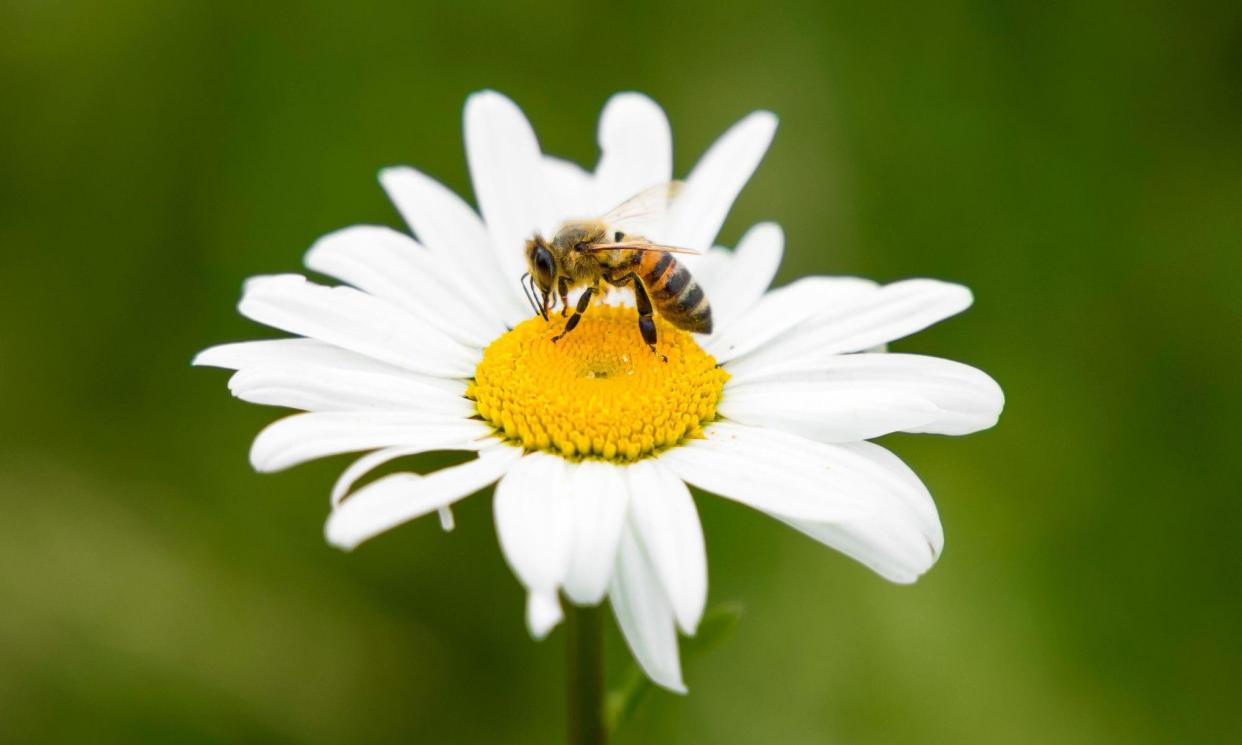Labour to end UK exemptions for bee-killing pesticides outlawed by EU

Labour will end exemptions for bee-killing pesticides that have already been outlawed in the EU but which the UK government has approved for four years in a row, the shadow environment minister has said.
This week, the government authorised the use of thiamethoxam, also known as Cruiser SB, on sugar beet crops – against the advice of its scientists, who said it would pose a threat to bees.
Prof Dave Goulson, a bee expert at the University of Sussex, has warned that one teaspoon of the chemical is enough to kill 1.25 billion honeybees.
The former environment secretary Michael Gove promised in 2017 that ministers would use Brexit to stop the use of the pesticide, which can destroy bee populations. Instead, the EU banned all emergency authorisations of neonicotinoid pesticides while since 2021 the UK government has allowed the emergency use of thiomethoxam every year.
If weather conditions allow the disease virus yellows to thrive, the government permits growers to treat their seeds with the chemical. Campaigners have long asked for this to end.
The shadow farming minister, Daniel Zeichner, told the Guardian it was “time to follow the science and stop using neonics”, and that Labour would stop emergency use of the pesticide. The policy has been submitted for inclusion in the party’s election manifesto. The Cambridge MP has been campaigning on the issue for years as the vice-president of the Cambridgeshire beekeepers’ association.
Wildlife groups welcomed the news. Craig Macadam, the conservation director for Buglife, said: “The continued presence of ecologically damaging toxins in our environment seriously hampers efforts to halt biodiversity loss and restore nature. The next government must uphold the neonicotinoid ban and commit to reducing pesticide use.
“Today’s promise from Labour to prevent the use of emergency derogations for neonicotinoids is a positive step for the environment and will safeguard bees, pollinators, and aquatic life. We encourage other parties to bring forward similar policies to reduce reliance on chemicals in food production.”
Richard Benwell, the chief executive of Wildlife and Countryside Link, added: “It comes to something when you have to re-ban a banned pesticide, but Labour has sent an important signal today that it would not succumb to industry pressure at the expense of wildlife and nature-friendly farming.
“With the repeated reauthorisations of Cruiser SB, government was revealing a mindset that environmental protections are optional.”
A Defra spokesperson said the pesticide would be “tightly controlled”, adding: “This decision has not been taken lightly, and now the threshold for the product’s use has been passed it will be strictly limited to mitigate risks to the environment, including potential risks to pollinators.”


